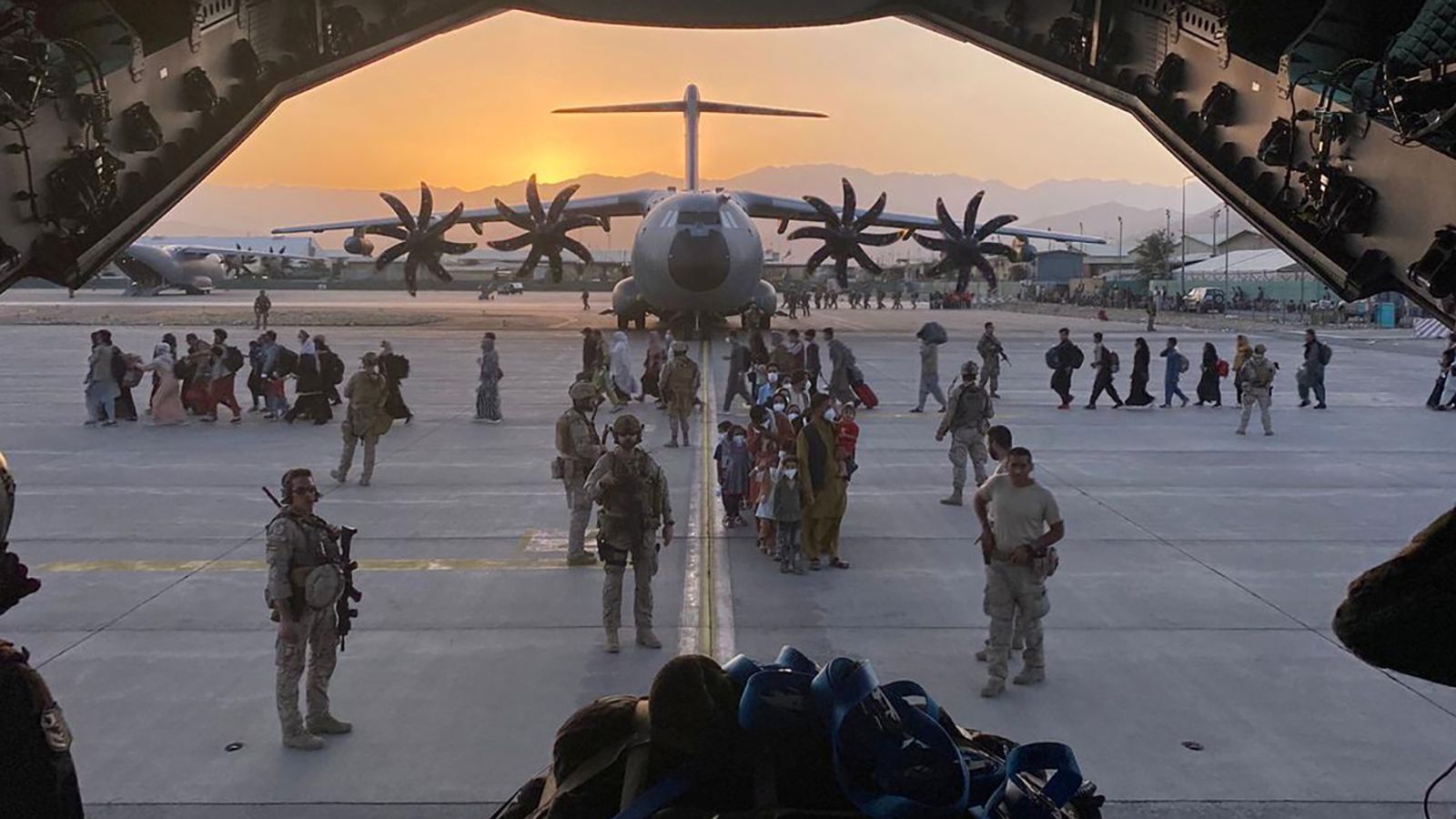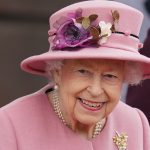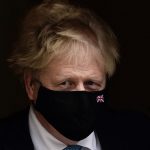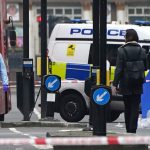Britain is expected to conclude its civilian evacuation operation from Afghanistan today, says the chief of the defence staff.
General Sir Nick Carter said on Saturday morning how there were now “very few” civilian evacuation flights arriving in the UK from Kabul.
The last remaining UK forces will need to withdraw, he said.
But Sir Nick warned Britain is “not out of the woods yet” as the UK’s evacuation efforts following the Taliban takeover draw to a close.
And he urged people to think of military personnel as the deadline for the final planes to leave Afghanistan rapidly approaches.
He said the reality is that not everyone will get out: “Not a day passes where I don’t have a tear in my eye over that.”
General Sir Nick said the final stages of the withdrawal and evacuation represented the “hardest phase” of the operation.
“A lot of things can go wrong” when the final planes leave – with officers facing “public disorder” as people desperately try to board a flight, together with the “threat of terrorism”.
Troops are working in the face of a “very demanding threat” while also focusing on the “humanitarian job” with soldiers “holding a gun in one hand and a baby in the other”, adding: “It has been very difficult”.
“The plain fact is we have always got that in the back of our minds.
“For the troops on the ground, they have to be constantly alert and constantly thinking about how they can rebut the threat.
“We should all be holding our breath and thinking of the last aeroplane and what a challenge it will be for those people trying to effect their departure.”
When asked about regrets, General Sir Nick said of the withdrawal: “It’s not how we hoped it would end, that’s absolutely right.”
He added: “I think we have done an extraordinary job to evacuate as many as we can but I’m afraid it’s absolutely heart-breaking we can’t get everybody out.
“If they are able to get out they will always be welcome but the awful fact of life is difficult decisions have to be made.”
It comes as Prime Minister Boris Johnson vowed to “shift heaven and earth” to get people out of Afghanistan.
But foreign affairs committee chairman, Tom Tugendhat, warned people should “absolutely forget” about getting to Kabul and attempting to fly from the airport.
“Forget about getting to Kabul. You know there’s 10 checkpoints between them on the motorway, let alone down the motorway, all the way to Kabul,” he told BBC Breakfast.
“You can absolutely forget about trying to get to the airport because every one of those checkpoints has a danger point where Taliban or indeed affiliated groups, drug dealers or just simply bandits could murder, and certainly have, been murdering various people.”
Mr Tugendhat said he was “extremely sad” about the many people left behind in Afghanistan, including many of his own friends.
“I very much hope that it might go beyond the August deadline but we found out a few days ago that it wasn’t, so I was expecting it,” he added.
He said he was continuing to work to help people out of the country.
“What I am working on, and you’ll understand I’m afraid that I’m not going to give you complete details about this, we’re looking at different networks to get people into second countries, and then connecting them to high commissions and ambassadors of the United Kingdom, to get them to the UK safely.”
Meanwhile Labour shadow defence secretary, John Healey, told Sky News how he also expected the evacuation efforts to wrap up within 24 hours – as flight s continued to arrive at RAF Brize Norton in Oxfordshire.
Mr Healey said: “This is the brutal truth, despite getting more than 14,000 people out, there are probably 1,000 Afghans who have worked with us over two decades in Afghanistan, helped our troops, our aid workers, our diplomats, that we promised to protect, but we’re leaving behind.
“And I know those troops in particular will feel our failure on this as a country is a betrayal of many of those who risked their own lives to work alongside us.”
The Ministry of Defence said on Friday how, once the final civilian evacuations were complete, more space would be available on military jets for diplomats and personnel.






















